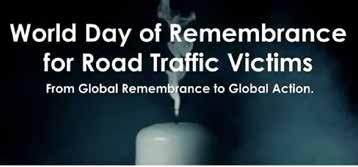
10 minute read
October
INTERNATIONAL DAYS INTERNATIONAL
DAYS NOVEMBER
Advertisement
2nd November – Melbourne Cup Day Melbourne Cup Day has been observed in Australia since the first race was held at the Flemington Racecourse, Melbourne in 1861. It is now officially gazetted a full public holiday throughout the state of Victoria on the 1st Tuesday in November. Encompassing the famous Melbourne Cup Day, along with three other key racedays — Victoria Derby Day, Oaks Day and Stakes Day — , the Melbourne Cup Carnival holds a unique position in world racing as there is no comparable week where crowds of such magnitude gather to celebrate thoroughbred racing. Also called the race that ‘stops a nation’, the Melbourne Cup runs over 3,200 metres at Flemington Racecourse and is for no more than 24 horses that are over three years old. The full-day event has also become known as an urban fashion parade for its celebration of the season’s latest trends. 2nd November – International Day to End Impunity for Crimes against Journalists The United Nations General Assembly proclaimed 2nd November as the ‘International Day to End Impunity for Crimes against Journalists’ in a general assembly resolution. The date was chosen in commemoration of the assassination of two French journalists in Mali on 2nd November 2013. This landmark resolution condemns all attacks and violence against journalists and media workers. It also urges Member States to do their utmost to prevent violence against journalists and media workers, ensure accountability, bring to justice perpetrators of crimes against journalists and media workers, and ensure that victims have access to appropriate remedies and promote a safe and enabling environment for journalists to perform their work. independently and without undue interference.

4th November – Diwali Diwali (Deepavli; Divali) — the festival of lights — is a celebration for Hindus, Jain and Sikhs. Usually lasting five days, the festival is held during the Hindu lunisolar month Kartika Diwali and it symbolizes the spiritual victory of light over darkness, good over evil, and knowledge over ignorance. Various gods and goddesses are associated with this festival, including Lakshmi, goddess of prosperity, Sita and Rama (the latter having returned from a 14-year exile after defeating the evil Ravana), Vishnu, Krishna, Yama, Yami, Durga, Kali, Hanuman, Ganesha, Kubera, Dhanvantari or Vishvakarman.
5th November – World Tsunami Awareness Day In December 2015, the United Nations (UN) general assembly designated 5th November as World Tsunami Awareness Day, calling on countries, international bodies and civil society to raise tsunami awareness and share innovative approaches to risk reduction. World Tsunami Awareness Day was the brainchild of Japan, which due to its repeated, bitter experience has over the years built up major expertise in areas such as tsunami early warning, public action and building back better after a disaster to reduce future impacts. UN Disaster Risk Reduction (UNDRR) facilitates the observance of World Tsunami Awareness Day in collaboration with the rest of the United Nations system. 6th November – International Day for Preventing the Exploitation of the Environment in War and Armed Conflict International Day for Preventing the Exploitation of the Environment in War and Armed Conflict is to recognise the role of healthy ecosystems and sustainably managed resources in conflict prevention, peacekeeping and peacebuilding strategies. Damage to the environment through war includes the pollution of water wells, the torching of crops, deforestation, soil poisoning and the killing of animals. There is no durable peace if the natural resources that sustain livelihoods and ecosystems are destroyed.
10th November – World Science Day for Peace and Development First celebrated in 2002, World Science Day for Peace and Development is to highlight the significant role of science in society and to: • strengthen public awareness of the role of science for peaceful and sustainable societies; • promote national and international solidarity for shared science between countries; • renew national and international commitment for the use of science for the benefit of societies; • draw attention to the challenges faced by science in raising support for the scientific endeavour.

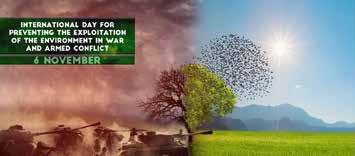
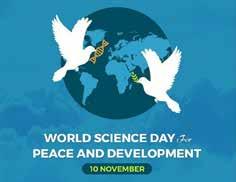
11th November – Remembrance Day At 11.00AM of the 11th day of the 11th month of each year, a minute’s silence is observed in Australia and some other Commonwealth countries to commemorate the 1918 silence on the Western Front after more than four years of continuous warfare in World War I (WWI). The day marks the unconditional surrender by the Germans and their calling for an armistice to secure a peace settlement. Remembrance Day is to honour the memories of armed forces members who died during WWI. The poppy is the enduring symbol of remembrance of the First World War. It is strongly linked with Armistice Day (11th November), but the poppy’s origin as a popular symbol of remembrance lies in the landscapes of the First World War. Poppies were a common sight, especially on the Western Front.
13th November – World Kindness Day Introduced in 1998 by the World Kindness Movement, World Kindness Day is observed in many countries, including Australia, Canada, India, Italy, Nigeria, Singapore, the United Arab Emirates and the United Kingdom. The funders are David Jamilly and Louise Burfitt-Dons. Suggested activities for the day include the giving of flowers, random hugs, kindness cards and gifts, as well as concerts and flashmob dances, songs and music. World Kindness Day is to highlight good deeds in the community and to bridge the divides of race, religion, politics, gender and location. 14th November – World Diabetes Day World Diabetes Day is the primary global awareness campaign focusing on diabetes mellitus and is held on 14th November of each year. Led by the International Diabetes Federation (IDF), each World Diabetes Day focuses on a theme related to diabetes. Type-2 diabetes is a largely preventable and treatable non-communicable disease that is rapidly increasing in numbers worldwide. Type-1 diabetes is not preventable but can be managed with insulin injections. Topics covered have included diabetes and human rights, diabetes and lifestyle, diabetes and obesity, diabetes in the disadvantaged and the vulnerable, and diabetes in children and adolescents.
16th November – International Day for Tolerance In 1996, the United Nations (UN) General Assembly invited UN Member States to observe the International Day for Tolerance on 16th November. In 1995, to mark the United Nations Year for Tolerance and the 125th anniversary of the birth of Mahatma Gandhi, UNESCO created a prize for the promotion of tolerance and non-violence. The UNESCOMadanjeet Singh Prize for the promotion of tolerance and non-violence rewards significant activities in the scientific, artistic, cultural or communication fields that are aimed at the promotion of a spirit of tolerance and non-violence.
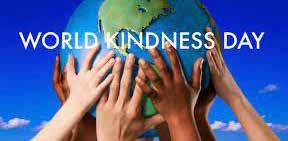
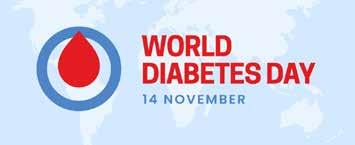
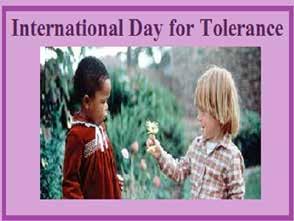
18th November – World Philosophy Day Celebrated each year on the 3rd Thursday of November, UNESCO underlines the enduring value of philosophy for the development of human thought, for each culture and for each individual. UNESCO leads World Philosophy Day – but does not own it. It belongs to everyone, everywhere, who cares about philosophy. On this day of collective exercise in free, reasoned and informed thinking on the major challenges of our time, all of UNESCO’s partners are encouraged to organize various types of activities - philosophical dialogues, debates, conferences, workshops, cultural events and presentations around the general theme of the day, with the participation of philosophers and scientists from all branches of natural and social sciences, educators, teachers, students, press journalists and other mass media representatives, and the general public.
19th November – World Toilet Day World Toilet Day is all about celebrating toilets for everything they do for us – from taking away our waste to protecting our health, safety and dignity. World Toilet Day is to raises awareness of the 4.2 billion people living without access to safely managed sanitation. It is about taking action to tackle the global sanitation crisis and achieve Sustainable Development Goal 6: water and sanitation for all by 2030. 20th November – World Children’s Day Established in 1954 as Universal Children’s Day, the now-named World Children’s Day is to promote international togetherness and awareness among children worldwide, and to improve children’s welfare. World Children’s Day offers an opportunity to advocate, promote and celebrate children’s rights, translating into dialogues and actions that will build a better world for children. Generations come together to reimagine the type of world we want to create.
21st November – World Television Day Electronic television was first demonstrated successfully in San Francisco in 1927 by Philo Taylor Farnsworth, a 21-year-old inventor who scanned images with a beam of electrons showing first a line and then a dollar sign on the screen. Today, television continues to be the single largest source of video consumption. Though different platforms are now being used to create, post, stream and consume content, the number of households with television sets around the world continues to rise. World Television Day is to celebrate both the tool and the importance of communication and globalisation. The date marks the first United Nations World Television Forum (in 1996) where leading media figures met to discuss the growing significance of television in today’s changing world, and acknowledged television as a major tool in informing, channelling and affecting public opinion.
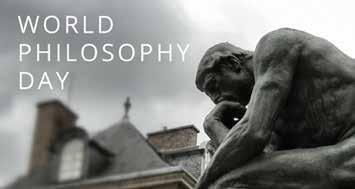
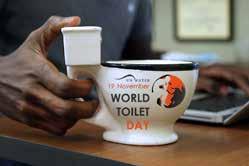


21st November – World Day of Remembrance for Road Traffic Victims The World Day of Remembrance for Road Traffic Victims takes place on the 3rd Sunday in November every year as the appropriate acknowledgment of victims of road traffic crashes and their families. It was started by the British road crash victim charity, RoadPeace, in 1993 and was adopted by the United Nations (UN) general assembly in 2005. World Day of Remembrance for Road Traffic Victims is to remember the millions who have been killed and seriously injured on the world’s roads, and to acknowledge the cumulative toll on and suffering of all affected victims, families and communities. Tribute is paid also to the dedicated emergency crews, police and medical professionals who deal daily with the traumatic aftermath of road crashes. The World Health Organization estimates that 1.35 million people die each year on the road.
25th November – International Day for the Elimination of Violence against Women International Day for the Elimination of Violence against Women is to end violence against women. Violence against women and girls is one of the most widespread, persistent and devastating human rights violations in our world today. It is largely unreported due to impunity, silence, stigma and shame. This violence manifests in physical, sexual and psychological forms, encompassing: • intimate partner violence such as battering, psychological abuse, marital rape and femicide; • sexual violence and harassment such as rape, forced sexual acts, unwanted sexual advances, child sexual abuse, forced marriage, street harassment, stalking, cyber- harassment; • human trafficking (slavery, sexual exploitation); • female genital mutilation; and • child marriage.
30th November – Day of Remembrance for all Victims of Chemical Warfare The Day of Remembrance for all Victims of Chemical Warfare is to pay tribute to the victims of chemical warfare, and to reaffirm the commitment of the Organisation for the Prohibition of Chemical Weapons (OPCW) to eliminate the threat of chemical weapons and promote the goals of peace, security, and multilateralism. Chemical weapons used during World War I (WWI) resulted in more than 100,000 deaths and a million casualties. With the threat of nuclear war, many countries had come to realise the significant threat to all of humankind from chemical weapons. Adopted in 1993, the Chemical Weapons Convention entered into force on 29th April 1997 and determined, for the sake of all mankind, to exclude completely the possibility of the use of chemical weapons.
